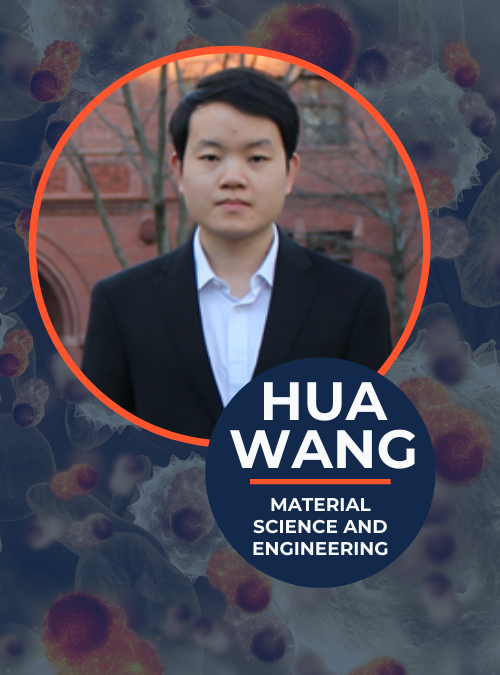The Cancer Center at Illinois welcomes new member, Hua Wang, Material Science and Engineering (MATSE) Assistant Professor, back to the University of Illinois Urbana-Champaign.
Wang completed his PhD in material science at Illinois and went onto Harvard University and Wyss Institute to work on cancer immunotherapy. Wang’s lab will focus on biomaterials, cancer immunotherapy, cell targeting, and immunoengineering.
“A big part of my research has been on cancer, although the strategy and methodology change over time,” Wang said.
As he sets up at Illinois, Wang’s lab will be investigating cancer and disease treatment options based on cell manipulation and engineering to facilitate targeted delivery of therapeutics and regulation of intercellular reactions. One path Wang and his team will be taking is the use of biomaterials that are engineered to moderate the whole immune response and system. Additionally, his lab will be integrating chemistry and biology to engineer cells for subsequent tracking and targeted modulation.
“The strategy we have been taking is to metabolically label cells with chemical tags using sugars. Previously we developed strategies to modify the sugar compound with a trigger-responsive moiety and ideally only in the presence of a cancer cell can the sugar compound be metabolized. This way we can specifically enable cancer cells with a chemical tag and then we can target a therapeutic or diagnostic agent to the cancer cell. We have also been applying this technology to the labeling and targeting of immune cells, in order to orchestrate T and B cell priming processes and the overall antitumor immune responses,” Wang explained.
Coming from a background in chemistry and materials science, he sees a promising future for cancer research that focuses on engineering biomaterials for immunomodulation. Although Wang has high hopes for the advancement of immunotherapy, it has a long way to go in terms of viable solutions and treatments.
“Cancer immunotherapy has evolved and been really promising in the past decade. Cancer immunotherapy itself has revolutionized the whole cancer treatment field,” Wang said.
Wang is already well acquainted with the vast and impactful research initiatives that the University of Illinois takes part in but is eager to contribute to the community of cancer researchers at the Cancer Center at Illinois. He is motivated to search for answers to the big questions that require micro-scale tedious research.
“I was already pretty excited to join the CCIL community because cancer will be a big part of the research in my laboratory. There is a big team already on campus developing different diagnostic or therapeutic approaches for cancer and I can see a lot of collaboration opportunities with the university and the Cancer Center at Illinois.”
Wang is currently recruiting students to join his lab team. Due to the lab’s intersection of many different principles, students from various science backgrounds are encouraged to apply.
Author: Communications Intern, Carly Kwiecinski

